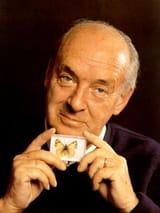Search Results
7/22/2025, 9:49:35 PM
Hemingway:
>As to Hemingway, I read him for the first time in the early 40s, something about bells, balls and bulls, and loathed it.
Faulkner:
>Writer of corncobby chronicles. To consider them masterpieces is an absurd delusion. A nonentity, means absolutely nothing to me.
Eliot:
>Now, having shaken off that stupor, I find the latter anagrimes with “Proust” while “T. S. Eliot” goes well with “toilets.”
Dostoevsky:
>Dislike him. A cheap sensationalist, clumsy and vulgar. A prophet, a claptrap journalist and a slapdash comedian. Some of his scenes are extraordinarily amusing. Nobody takes his reactionary journalism seriously.
Borges:
>At first Véra and I were delighted by reading him. We felt we were on a portico, but we have learned that there was no house.
Freud:
>A figure of fun. Loathe him. Vile deceit. Freudian interpretation of dreams is charlatanic, and satanic, nonsense.
>Let the credulous and the vulgar continue to believe that all mental woes can be cured by a daily application of old Greek myths to their private parts. I really do not care.
James:
>I have read (or rather reread) 'What Maisie Knew.' It is terrible. Perhaps there is some other Henry James and I am continuously hitting upon the wrong one?
>I read a collection of Henry James' short stories—miserable stuff, a complete fake, you ought to debunk that pale porpoise and his plush vulgarities some day.
>He writes with a very sharp nib and the ink is very pale and there is very little of it in his inkpot . . . The style is artistic but it is not the style of an artist . . . Henry James is definitely for non-smokers. He has charm (as the weak blond prose of Turgenev has), but that’s about all.
Gogol:
>Nobody takes his mystical didacticism seriously. At his worst, as in his Ukrainian stuff, he is a worthless writer; at his best, he is incomparable and inimitable. Loathe his moralistic slant, am depressed and puzzled by his inability to describe young women, deplore his obsession with religion.
>As to Hemingway, I read him for the first time in the early 40s, something about bells, balls and bulls, and loathed it.
Faulkner:
>Writer of corncobby chronicles. To consider them masterpieces is an absurd delusion. A nonentity, means absolutely nothing to me.
Eliot:
>Now, having shaken off that stupor, I find the latter anagrimes with “Proust” while “T. S. Eliot” goes well with “toilets.”
Dostoevsky:
>Dislike him. A cheap sensationalist, clumsy and vulgar. A prophet, a claptrap journalist and a slapdash comedian. Some of his scenes are extraordinarily amusing. Nobody takes his reactionary journalism seriously.
Borges:
>At first Véra and I were delighted by reading him. We felt we were on a portico, but we have learned that there was no house.
Freud:
>A figure of fun. Loathe him. Vile deceit. Freudian interpretation of dreams is charlatanic, and satanic, nonsense.
>Let the credulous and the vulgar continue to believe that all mental woes can be cured by a daily application of old Greek myths to their private parts. I really do not care.
James:
>I have read (or rather reread) 'What Maisie Knew.' It is terrible. Perhaps there is some other Henry James and I am continuously hitting upon the wrong one?
>I read a collection of Henry James' short stories—miserable stuff, a complete fake, you ought to debunk that pale porpoise and his plush vulgarities some day.
>He writes with a very sharp nib and the ink is very pale and there is very little of it in his inkpot . . . The style is artistic but it is not the style of an artist . . . Henry James is definitely for non-smokers. He has charm (as the weak blond prose of Turgenev has), but that’s about all.
Gogol:
>Nobody takes his mystical didacticism seriously. At his worst, as in his Ukrainian stuff, he is a worthless writer; at his best, he is incomparable and inimitable. Loathe his moralistic slant, am depressed and puzzled by his inability to describe young women, deplore his obsession with religion.
Page 1
